On Wednesday 16th December 2009, Trafalgar Square will host a free feast of biblical proportions: a modern day Feeding the 5000. In this short film, Tristram Stuart, author of Waste, explains the problem – and outlines some solutions.
Feeding the 5,000
December 15th, 2009 · No Comments
→ No CommentsTags: food and drink · history and politics · video
Books of the Decade - Peter Sillem
December 15th, 2009 · 1 Comment
 Peter Sillem is Editor-in-Chief Non-Fiction at S. Fischer Verlag, a German publishing house founded in 1886. He is the author of a book on melancholia in Early Modern Europe and lives in Frankfurt with his wife and two young children.
Peter Sillem is Editor-in-Chief Non-Fiction at S. Fischer Verlag, a German publishing house founded in 1886. He is the author of a book on melancholia in Early Modern Europe and lives in Frankfurt with his wife and two young children.
To see which titles Peter has chosen as his Books of the Decade, click below.
[Read more →]
→ 1 CommentTags: history and politics · literature
Books of the Decade - Keith Kahn-Harris
December 12th, 2009 · No Comments
 Keith Kahn-Harris works as a sociologist, researcher, writer and music critic. He is an Honorary Research Fellow at the Centre for Religion and Contemporary Society at Birkbeck College, an associate lecturer for the Open University and the convenor of New Jewish Thought.
Keith Kahn-Harris works as a sociologist, researcher, writer and music critic. He is an Honorary Research Fellow at the Centre for Religion and Contemporary Society at Birkbeck College, an associate lecturer for the Open University and the convenor of New Jewish Thought.
He has written on a variety of topics, including Judaism, music scenes, heavy metal, transgression, Israel, communities, dialogue, religion, ethnicity, political discourse, and denial. You can find his contributions to the Guardian’s Comment is Free here.
Tove Jansson, The Summer Book (2003)
 Okay, this was first published in 1972, but the English translation appeared in 2003. If she is heard of at all, the Swedish-speaking Finnish author Tove Jansson is known in the English-speaking world for the Moomin books. The Summer Book shows her to have been (she died in 2001) an author of mature works of extraordinary subtlety and power.
Okay, this was first published in 1972, but the English translation appeared in 2003. If she is heard of at all, the Swedish-speaking Finnish author Tove Jansson is known in the English-speaking world for the Moomin books. The Summer Book shows her to have been (she died in 2001) an author of mature works of extraordinary subtlety and power.
The Summer Book recounts the conversations and “adventures” of an old women and her six-year-old granddaughter spending the summer together on a small island in the Gulf of Finland. It is a beautiful and profound meditation on age, love and life itself.
Jared Diamond, Collapse: How Societies Choose to Fail or Succeed (2005)
 In a decade in which climate change finally became an issue that no one could ignore (despite the Bush administration’s best attempts), Jared Diamond provided a powerful reminder that the survival of any civilization is never guaranteed. Diamond displays an extraordinary range and depth of research in his historical account of societies that have collapsed.
In a decade in which climate change finally became an issue that no one could ignore (despite the Bush administration’s best attempts), Jared Diamond provided a powerful reminder that the survival of any civilization is never guaranteed. Diamond displays an extraordinary range and depth of research in his historical account of societies that have collapsed.
Although he takes due account of specific circumstances, his discussion of civilizations as various as that of Easter Island, the Maya and Angkor Wat show with admirable clarity and force the importance of questions of environmental sustainability. Unlike the societies Diamond studied, we have the historical and scientific knowledge to adapt to the limits of our environment – but it is far from clear that we have the will to do so.
John Harris, The Last Party: Britpop, Blair and the Demise of English Rock (2003)
 It’s been a pleasure to watch John Harris’s transformation from NME hack to one of Britain’s best political journalists. The Last Party catches Harris on the cusp of that transformation as he merges political history with rock history and criticism.
It’s been a pleasure to watch John Harris’s transformation from NME hack to one of Britain’s best political journalists. The Last Party catches Harris on the cusp of that transformation as he merges political history with rock history and criticism.
The story is a cautionary one of how enormous ambition and tremendous talent can be subverted into pomposity and hubris. Harris’s parallels the youthful promise of Blair and of the Britpop bands, together with the subsequent descent into love of riches and power (Blair) and cocaine-fueled excess (Britpop). A salutary tale, brilliantly told.
→ No CommentsTags: history and politics · literature
Books of the Decade - Mark Vernon
December 11th, 2009 · No Comments
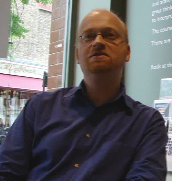 Mark Vernon is a writer, broadcaster and journalist. His academic interests led him from physics to philosophy via theology (he began his professional life as a priest in the Church of England). He went freelance ten years ago and now writes regularly for the Guardian, The Philosophers’ Magazine, TLS, Financial Times and New Statesman, alongside a range of business titles, including Management Today. He also broadcasts, notably on BBC Radio 4’s In Our Time.
Mark Vernon is a writer, broadcaster and journalist. His academic interests led him from physics to philosophy via theology (he began his professional life as a priest in the Church of England). He went freelance ten years ago and now writes regularly for the Guardian, The Philosophers’ Magazine, TLS, Financial Times and New Statesman, alongside a range of business titles, including Management Today. He also broadcasts, notably on BBC Radio 4’s In Our Time.
 Mark’s most recent book is Plato’s Podcasts: The Ancients’ Guide to Modern Living. You can hear a podcast about that book by clicking here. His other publications include: Wellbeing, After Atheism, The Philosophy of Friendship, and Science, Religion and the Meaning of Life.
Mark’s most recent book is Plato’s Podcasts: The Ancients’ Guide to Modern Living. You can hear a podcast about that book by clicking here. His other publications include: Wellbeing, After Atheism, The Philosophy of Friendship, and Science, Religion and the Meaning of Life.
On Religion, John Caputo (2001)
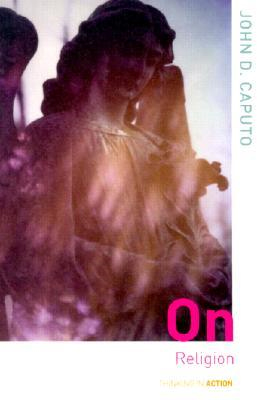 This book appeared in 2001. Had those folk who waged battle in the God wars of the decade read it first, we might have had a more informed debate.
This book appeared in 2001. Had those folk who waged battle in the God wars of the decade read it first, we might have had a more informed debate.
Caputo aims to do a difficult thing: define religion. He does so with great verve, seeing that at heart, religion is a form of love – for good or ill.
The Athenian Murders, José Carlos Somoza (2001)
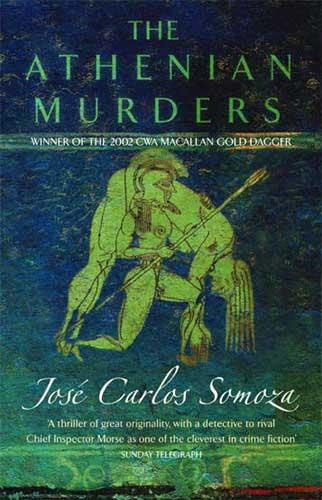 It is rare for a novel to combine the excitement of the thriller with the insight of great philosophy.
It is rare for a novel to combine the excitement of the thriller with the insight of great philosophy.
Umberto Eco manages it, and Somoza does too, in a plot that starts with an apparently minor conundrum and ends up engaging nothing less than the secret of knowledge itself. Brilliant.
The Kingdom of Infinite Space: A Fantastical Journey Around Your Head, Raymond Tallis (2008)
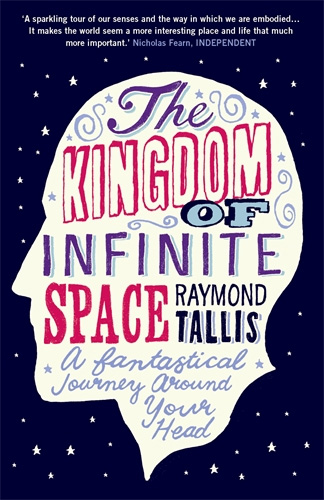 I read this book whilst taking a long train trip, and it was so engaging that when I got off, I’d swear I saw the world in brighter colours.
I read this book whilst taking a long train trip, and it was so engaging that when I got off, I’d swear I saw the world in brighter colours.
Tallis combines the science of the body with the philosophy of consciousness and, pulling no punches, produces a truly remarkable exploration of what goes on with our heads.
→ No CommentsTags: literature · podcasts · religion and belief · science and philosophy
Books of the Decade - Andy Beckett
December 9th, 2009 · No Comments
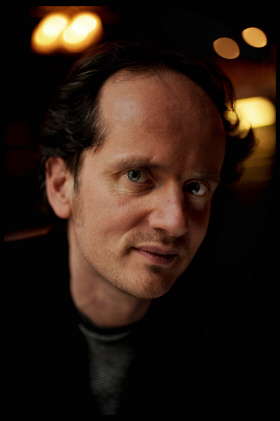 Andy Beckett studied modern history at Oxford University and journalism at the University of California in Berkeley. For his first, widely praised book, Pinochet in Piccadilly: Britain and Chile’s Hidden History (2002), he was nominated as Sunday Times Young Writer of the Year.
Andy Beckett studied modern history at Oxford University and journalism at the University of California in Berkeley. For his first, widely praised book, Pinochet in Piccadilly: Britain and Chile’s Hidden History (2002), he was nominated as Sunday Times Young Writer of the Year.
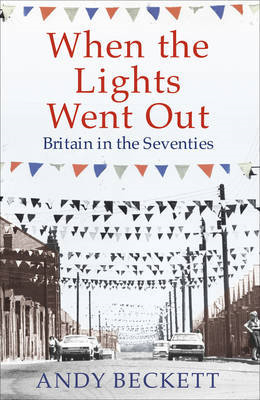 In 2009 he published a major new history of the political landscape of Britain in the 1970s: When the Lights Went Out. Reviewing the book, Hanif Kureishi praised Beckett for his “avid eye and novelistic flair for detail” and concluded “Beckett’s excellent account of the 1970s is a necessity if we want to understand now as well as then”. You can hear an interview with Andy Beckett in which he discusses the book here.
In 2009 he published a major new history of the political landscape of Britain in the 1970s: When the Lights Went Out. Reviewing the book, Hanif Kureishi praised Beckett for his “avid eye and novelistic flair for detail” and concluded “Beckett’s excellent account of the 1970s is a necessity if we want to understand now as well as then”. You can hear an interview with Andy Beckett in which he discusses the book here.
Since 1993, he has written for the New York Times, the Economist, the Independent on Sunday and the London Review of Books. For the last twelve years, he has been a feature writer at the Guardian. He lives in London.
Click below to see which titles Andy has chosen as his Books of the Decade.
[Read more →]
→ No CommentsTags: history and politics · literature · podcasts
Books of the Decade - Tony Bruce
December 4th, 2009 · No Comments
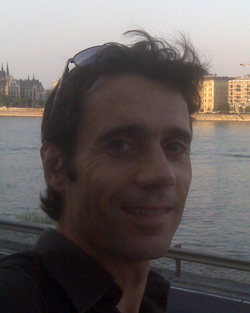 Tony Bruce has spent pretty much his entire working life in books. First at Stockbridge Bookshop in Edinburgh (still going strong), followed by a stint at the epicentre of bookselling at Waterstones, Charing Cross Road (sadly no longer) before becoming manager of Waterstones at Goldsmiths College.
Tony Bruce has spent pretty much his entire working life in books. First at Stockbridge Bookshop in Edinburgh (still going strong), followed by a stint at the epicentre of bookselling at Waterstones, Charing Cross Road (sadly no longer) before becoming manager of Waterstones at Goldsmiths College.
Having had enough of bookselling he moved to Routledge in 1994, where he is now Publisher for the Philosophy list. He enlivens the routines of academic publishing by occasionally commissioning trade books, most recently with The Philosopher’s Dog by Raimond Gaita and The War for Children’s Minds by Stephen Law. He lives in Bath.
A Lie About My Father, John Burnside (2006)
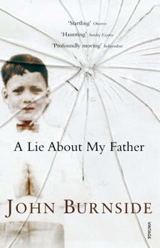 A deeply thoughtful book, full of hurting, damage and repetition. It is a searing portrayal of first a father and then a son caught in an alcoholic and drugged loop of self-destruction. Yet it is as far as one can imagine from the recent slew of self-indulgent “misery memoirs”. Burnside’s compassion comes through on every page; he does not forgive his father but somehow refrains from judging him.
A deeply thoughtful book, full of hurting, damage and repetition. It is a searing portrayal of first a father and then a son caught in an alcoholic and drugged loop of self-destruction. Yet it is as far as one can imagine from the recent slew of self-indulgent “misery memoirs”. Burnside’s compassion comes through on every page; he does not forgive his father but somehow refrains from judging him.
Perhaps what lingers most in the memory, aside from the miracle of Burnside’s survival, is the way he writes. You can smell the damp woods, housing estates and pubs first of Fife then Corby, yet every page has a poetic beauty to it.
Epileptic, David B (2005)
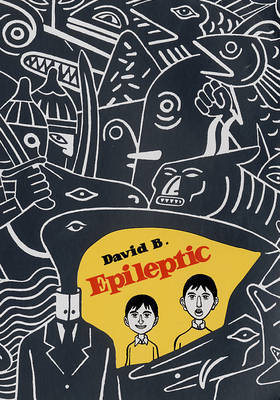 Forget what you think you know about graphic novels. This is a coruscating and moving account of one family’s search for a cure for their epileptic son, as narrated by his brother, translated from French. It’s an odd book, brilliantly and terrifyingly illustrated with an occasionally rambling structure. Yet the account of the ever more surreal quest undertaken by David’s parents, through traditional medicine to macrobiotics and voodoo, never fails to grip and there is even the odd, really odd, comic fragment.
Forget what you think you know about graphic novels. This is a coruscating and moving account of one family’s search for a cure for their epileptic son, as narrated by his brother, translated from French. It’s an odd book, brilliantly and terrifyingly illustrated with an occasionally rambling structure. Yet the account of the ever more surreal quest undertaken by David’s parents, through traditional medicine to macrobiotics and voodoo, never fails to grip and there is even the odd, really odd, comic fragment.
The Rider, Tim Krabbé
 The Tour of Mont Aigoual never happened, but after reading Tim Krabbé’s book I can remember every kilometre. Forget the science of lactate threshold and “VO2 max” that dominate modern cycling, this is old school stuff and what every rider experiences in a bike race: pain, boredom, envy, hunger, elation, despair, all related by one-time racer Krabbé.
The Tour of Mont Aigoual never happened, but after reading Tim Krabbé’s book I can remember every kilometre. Forget the science of lactate threshold and “VO2 max” that dominate modern cycling, this is old school stuff and what every rider experiences in a bike race: pain, boredom, envy, hunger, elation, despair, all related by one-time racer Krabbé.
Ostensibly a fictional account of a bike race, it’s really an existential thriller with the occasional Bunuel-like detour: have you ever imagined cycling along a road made of mashed potato, leaning down from your seat for a forkful? Probably not. The names of Krabbe’s adversaries are legends for any proper cyclist: Barthelmy, Reilhan, Kleber, Lebusque and the rider from “Cycles Goff”. Who can forget them?
→ No CommentsTags: literature · sport
Books of the Decade - Katy Derbyshire
December 3rd, 2009 · 1 Comment
 Katy Derbyshire is a translator and co-editor of city-lit Berlin (with Heather Reyes, who recently featured in Podularity podcast 36). She writes biased and unprofessional reports on German books, translation issues and life in Berlin at her blog, love german books.
Katy Derbyshire is a translator and co-editor of city-lit Berlin (with Heather Reyes, who recently featured in Podularity podcast 36). She writes biased and unprofessional reports on German books, translation issues and life in Berlin at her blog, love german books.
Katy fell in love with German literature despite studying it at university, and was lured to Berlin in 1996 by a man, music and low rents. She stayed and now has a different man, a daughter and a lack of shelf space.
Inka Parei, Die Schattenboxerin
 This is a wonderfully confusing short novel about a woman losing and finding herself in post-1989 Berlin. At first it reads like a detective story, but the psychology becomes more and more complex until the reader is just as disoriented as the protagonist.
This is a wonderfully confusing short novel about a woman losing and finding herself in post-1989 Berlin. At first it reads like a detective story, but the psychology becomes more and more complex until the reader is just as disoriented as the protagonist.
What I love about it is the way it captures the sad settings of East Berlin in the early 90s: decaying factories, a tumbledown former fairground, an all but vacant house. And the interim mood after the Wall had fallen but before the city became quite the vibrant place it is today. All in beautiful, inventive language. Translated into 16 languages so far, I hope to start work on it myself very soon.
Selim Özdogan, Die Tochter des Schmieds
 This has to be my all-time favourite. It’s a “backstory” for Germany’s large Turkish population, the tale of a girl growing up in rural Anatolia in the 50s and 60s. It’s told with huge love and affection, with occasional flashes of Gül’s future life in Germany.
This has to be my all-time favourite. It’s a “backstory” for Germany’s large Turkish population, the tale of a girl growing up in rural Anatolia in the 50s and 60s. It’s told with huge love and affection, with occasional flashes of Gül’s future life in Germany.
The story is made up of episodes and anecdotes, perhaps a little like a Turkish-German Laura Ingalls Wilder, if there can be such a thing. Özdogan takes great care to avoid cliché, and the novel even plays a cameo role in Fatih Akin’s award-winning film Edge of Heaven. This is the book I’d most like to translate myself. There’s a sample translation on the publisher’s website here (click on Download at the foot of the page for pdf).
Clemens Meyer, Die Nacht, die Lichter
 Clemens Meyer is an exceptional young talent, and this collection of short stories rightly won him one of Germany’s most important literary awards in 2008.
Clemens Meyer is an exceptional young talent, and this collection of short stories rightly won him one of Germany’s most important literary awards in 2008.
Heavily influenced by 20th-century American writing even down to some of the titles, the stories look at the darker side of life in Germany. Drug abuse, violence, gambling, alcohol – Meyer sweeps us along with the highs and lows involved. His characters are taciturn, down on their luck, unpleasant – and incredibly well drawn with just a few strokes of the pen. Again, it’s a book I’d love to get my teeth into – and you can read my translation of one of the stories in the Guardian.
→ 1 CommentTags: literature
Books of the Decade - Steve Lake
December 2nd, 2009 · No Comments
 Steve Lake is a producer for the Munich-based jazz and classical music record label, ECM, which celebrates its fortieth anniversary this year, and co-author (with Paul Griffiths) of a book about the company, Horizons Touched (Granta, 2007). He has written about music for many international magazines and newspapers, and about literature for Germany’s Akzente. His recent record productions include albums with saxophonists Evan Parker
Steve Lake is a producer for the Munich-based jazz and classical music record label, ECM, which celebrates its fortieth anniversary this year, and co-author (with Paul Griffiths) of a book about the company, Horizons Touched (Granta, 2007). He has written about music for many international magazines and newspapers, and about literature for Germany’s Akzente. His recent record productions include albums with saxophonists Evan Parker
and Roscoe Mitchell, and with singer Judith Berkson, whose ECM debut will be released in 2010.
Shirley Collins, America over the Water (SAF Publishing, 2004)
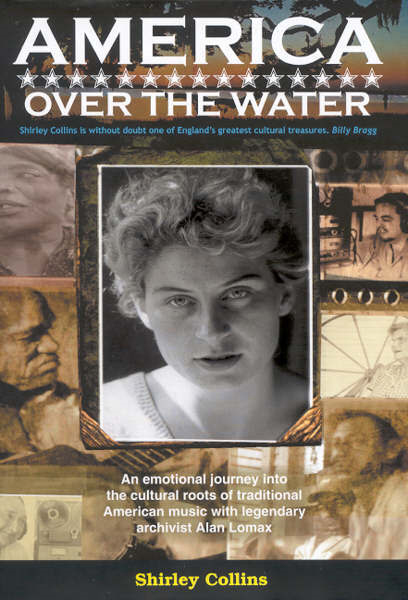 Touching memoir of Sussex singer Shirley Collins’s personal and professional alliance with Texan folklorist Alan Lomax, and of their revelation-packed collecting trip through the American South in 1959.
Touching memoir of Sussex singer Shirley Collins’s personal and professional alliance with Texan folklorist Alan Lomax, and of their revelation-packed collecting trip through the American South in 1959.
In Como, the then-unknown Fred McDowell walked out of the Mississippi forest to dazzle them with his bottleneck guitar playing. In Virginia their tape reels captured the rippling clawhammer banjo of Wade Ward. On the Parchman Farm prison camp Lomax recorded work songs (which would resurface –half a century later – on the “O Brother Where Art Thou” soundtrack). They taped singers on the mountains, on the railroads, in black churches and white churches…
A year on the road together would strain Collins’s relationship with Lomax to breaking point, but what an inspiring preamble to a life in folk music.
Phil Lesh, Searching for the Sound: My Life with the Grateful Dead ( Little, Brown, 2005)
 Phil Lesh had already been an orchestral violinist, jazz trumpeter, classmate of Steve Reich and composition student of Luciano Berio before being drafted, in 1965, to play bass guitar for the embryonic Grateful Dead.
Phil Lesh had already been an orchestral violinist, jazz trumpeter, classmate of Steve Reich and composition student of Luciano Berio before being drafted, in 1965, to play bass guitar for the embryonic Grateful Dead.
His undimmed enthusiasm for music - from blues to the avant-garde – drives this book, just as it powered the Dead’s improvisational flights though more than two thousand concerts. “Music can define life itself, and it has indeed defined my life. In life, as in art, there are recurring themes, transpositions, repetitions, unexpected developments, all converging to define a form that’s not necessarily apparent until its ending has come and gone.”
Albert Ellis, Rational Emotive Behavior Therapy (Prometheus Books, 2004)
 You think you’ve got problems? In 2003, Albert Ellis, nearly 90 years old, was hospitalized for major surgery to remove his colon. At the time, he was also isolated by increasing deafness, his girlfriend of 37 years had just left him, and members of the psychology institute he founded were voting to remove him from its board of directors. Against this challenging background, Ellis did what he had done so often before: wrote a book to help others, with stoicism and gruff humour intact.
You think you’ve got problems? In 2003, Albert Ellis, nearly 90 years old, was hospitalized for major surgery to remove his colon. At the time, he was also isolated by increasing deafness, his girlfriend of 37 years had just left him, and members of the psychology institute he founded were voting to remove him from its board of directors. Against this challenging background, Ellis did what he had done so often before: wrote a book to help others, with stoicism and gruff humour intact.
All of Ellis’s books (there are over seventy) are worth reading. This one, with its confessional tone and clear-eyed self-criticism, can be considered part of an important late trilogy that also includes The Myth of Self-Esteem (2005) and The Road to Tolerance (2006).
→ No CommentsTags: art and music
Three questions for… Robert Rowland Smith
December 1st, 2009 · No Comments
 This is the second in an occasional series in which I ask an interviewee three questions - no tricks or traps, but no forewarning either.
This is the second in an occasional series in which I ask an interviewee three questions - no tricks or traps, but no forewarning either.
This time my guest is writer, Robert Rowland Smith, who has just published a book entitled Breakfast with Socrates: The Philosophy of Everyday Life. I rather like the exclamation mark and semi-colon behind Robert’s shoulder, unintentional though they were!
Click on the book cover above to find out more about Robert’s book. A podcast interview - in which I get to ask Robert more than three questions - is coming soon.
→ No CommentsTags: science and philosophy · video
Books of the Decade - Christopher Potter
December 1st, 2009 · No Comments
 Christopher Potter, after a distinguished career in publishing of over two decades, published his own first book this year: You Are Here: A Portable History of the Universe, which the Sunday Times called “wonderful stuff, the most thoughtful pop science book of the last few years” and which New Scientist praised for its “crisp, authoritative writing and deft handling of difficult subjects”.
Christopher Potter, after a distinguished career in publishing of over two decades, published his own first book this year: You Are Here: A Portable History of the Universe, which the Sunday Times called “wonderful stuff, the most thoughtful pop science book of the last few years” and which New Scientist praised for its “crisp, authoritative writing and deft handling of difficult subjects”.
In August, Christopher appeared in programme 29 on Podularity - “A Walk across the Universe” - which you can listen to by clicking here.
[Author photograph: © Joyce Ravid]
Philip Roth: The Humbling (2009)
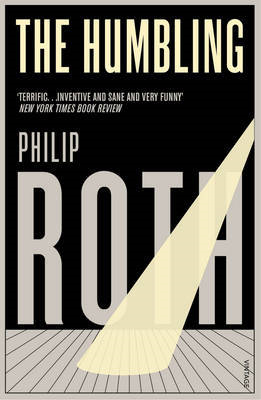 The Humbling is Philip Roth’s seventh novel of this decade, and though far from being his finest, even Roth under par is more appealing to me than the work of almost anyone else alive and writing today. The Human Stain, published at the beginning of this decade, still resonates in my mind.
The Humbling is Philip Roth’s seventh novel of this decade, and though far from being his finest, even Roth under par is more appealing to me than the work of almost anyone else alive and writing today. The Human Stain, published at the beginning of this decade, still resonates in my mind.
With another novel already promised for 2010 – Nemesis - we can only hope for another decade of astonishing fecundity.
Junot Diaz: The Brief Wondrous Life of Oscar Wao (2007)
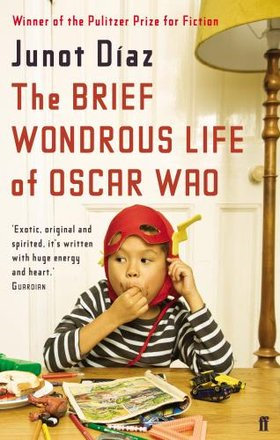 As an editor of books for over twenty years, I found myself with little time and almost no inclination to read contemporary writers other than those that were either submitted to me or whom I ended up publishing.
As an editor of books for over twenty years, I found myself with little time and almost no inclination to read contemporary writers other than those that were either submitted to me or whom I ended up publishing.
Part of the delight of these last four years outside publishing has been the rediscovery of reading as pure pleasure. (It has taken me a long time to break the habit of reading with a pencil in my hand.)
The novel of the last few years that stands out to me is Junot Diaz’s The Brief Wondrous Life of Oscar Wao (2007). When a new voice is as powerful as his, as funny, original and shocking, to read contemporary fiction feels like urgent necessity rather than escapist diversion.
Annie Proulx: Fine Just the Way It Is (2008)
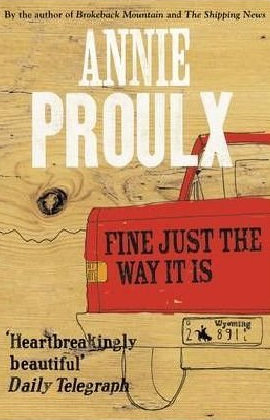 Yes, I admit to being Annie Proulx’s British editor, but see above. And in any case I had left by the time Fine Just the Way It Is was published (2008). Annie Proulx is of course a very fine novelist, but she is an even greater writer of short stories.
Yes, I admit to being Annie Proulx’s British editor, but see above. And in any case I had left by the time Fine Just the Way It Is was published (2008). Annie Proulx is of course a very fine novelist, but she is an even greater writer of short stories.
In this third collection of stories set in Wyoming are several stories that are works of genius; classics to set aside Brokeback Mountain, the story that assures her immortality and which was published at the end of the last decade.


